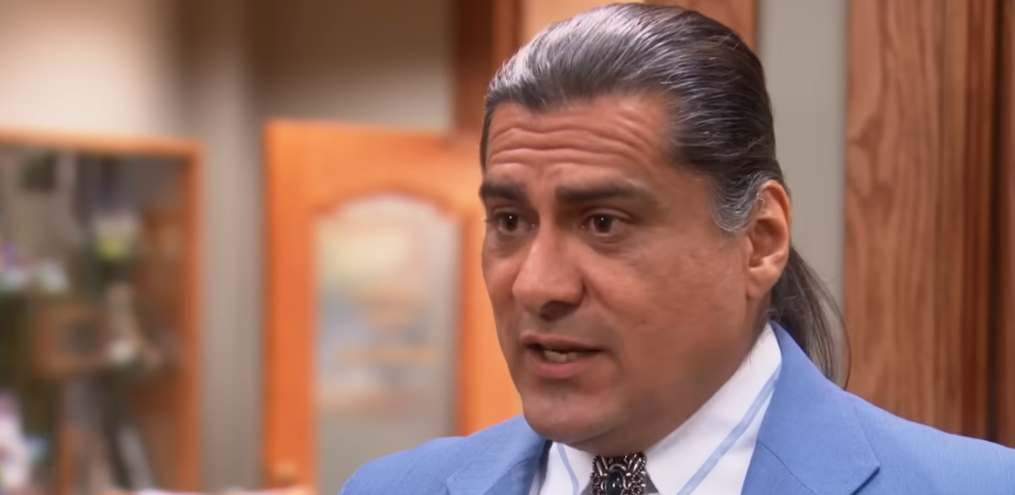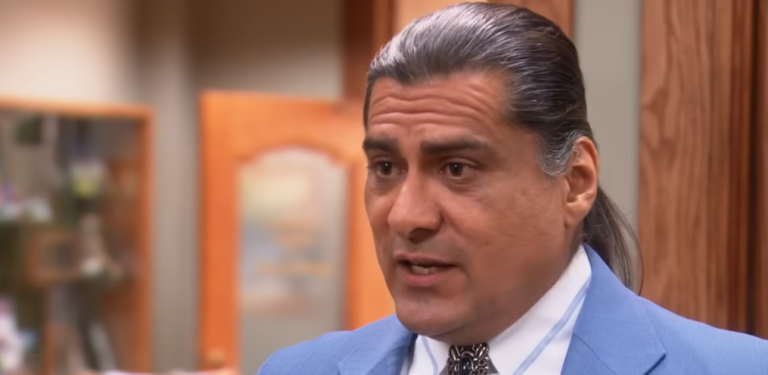Jonathan Joss – Personal and Career Overview
| Category | Detail |
|---|---|
| Full Name | Jonathan Joss Gonzales |
| Date of Birth | December 22, 1965 |
| Date of Death | June 1, 2025 |
| Age at Death | 59 years |
| Nationality | American (Apache and Comanche descent) |
| Profession | Actor, Voice Artist, Entrepreneur |
| Known For | Voicing John Redcorn in King of the Hill |
| Other Appearances | Parks and Recreation, Ray Donovan, Tulsa King |
| Estimated Net Worth | Approximately $1 million |
| Business Venture | Branded spice rubs and merchandise line |
| Marital Status | Married to Tristan Kern de Gonzales |
| Source | Hindustan Times (www.hindustantimes.com) |
The unexpected passing of Jonathan Joss in recent days has caused people to consider not only his contribution to entertainment but also the realities of pursuing a career in character work. By Hollywood standards, his estimated net worth of $1 million may not seem like much, but it is a testament to his artistic perseverance, unwavering commitment, and moral character. Few voice actors, in particular, can maintain a three-decade career without ever making headlines or appearing in tabloids.
Joss became a subtly powerful voice for Native American representation on television when she voiced John Redcorn on King of the Hill. A generation’s move toward more accurate cultural representations was reflected in that role alone, which left a subtle but lasting legacy. He brought the spirit of that character into the real world by using his platform strategically to launch a line of spice rubs that mirrored his television persona. Without using gimmicks, the company was remarkably successful in strengthening his brand, even though it remained niche.

Jonathan Joss had become more selective over the previous ten years, starring in shows like Ray Donovan and Tulsa King, where his brief roles were presented with a grounded authenticity. His extremely adaptable acting style was demonstrated by these later projects, which gave him the opportunity to demonstrate depth beyond animation. His physical performances exhibited a refined stillness that made every scene feel heavier, and his voice had a richness that spoke to audiences of all ages.
Joss discovered new ways to interact with his fan base during the pandemic, frequently using his website to sell spice kits and signed merchandise. He leaned into the community he had helped create, one that was characterized by loyalty, respect, and cultural pride, rather than choosing to engage in fame-chasing activities. This strategy is particularly beneficial for mid-tier actors, and Joss’s career path now resembles that of colleagues like Phil LaMarr and Brent Spiner—actors who aren’t well-known for their front-page appearances but rather for their steady presence in our living rooms.
Given the earnings of celebrities, Joss’s $1 million valuation might appear low. However, it demonstrated prudent income management as opposed to careless growth. He was grounded in every way; he wasn’t flipping mansions or purchasing islands. His lifestyle, which valued comfort and creativity over extravagance, was probably supported by his finances. But the terrible violence that took his life was not prevented by that grounding.
In San Antonio, Jonathan Joss was killed after a furious altercation with Sigfredo Ceja Alvarez, a neighbor. His husband, Tristan Kern de Gonzales, characterized the altercation as a hate-driven attack, citing repeated harassment related to their sexuality, although the cause of the altercation is still being investigated. Although the case is still ongoing, it has already sparked a larger discussion about LGBTQ+ couples’ safety and visibility, particularly for those who reside outside of historically progressive urban areas.
Fans and colleagues have honored Joss as more than just a character actor since his passing was announced. Someone who respectfully introduced Native stories into mainstream settings, he served as a cultural bridge. Joss was especially creative in the way he expanded his work beyond screenplays, transforming dialogue into mentoring, character depth into community building, and voice lines into merchandise. His voice workshops, his attendance at Native-led film festivals, and his willingness to help up-and-coming artists are all aspects of his legacy that are rarely mentioned in the media.
Even after King of the Hill concluded in 2010, Joss managed to stay relevant through strategic alliances and public appearances. It is extremely challenging to sustain that kind of longevity in the entertainment industry, particularly for actors with Indigenous ancestry. For Joss and many others, breaking into the film and television industries still requires overcoming outdated stereotypes. However, he did it steadily rather than loudly.
Joss’s story is especially uplifting for younger artists from comparable backgrounds. It demonstrates the importance of taking the long view and that voice acting can be just as respectable and culturally significant as major roles in motion pictures. He didn’t fit the limited definition of success that press tours and red carpets imposed. Rather, he created an area that was exclusively his.
Although the demand for voice actors has increased since the early 2000s due to streaming platforms, pay disparities still exist. This disparity is highlighted by Joss’s career. His earnings demonstrated systemic undervaluation, despite the fact that his voice helped shape one of the most recognizable animated series on American television. Joss’s story, which ended just as those discussions were gathering steam, gives those negotiations a human face. The recent SAG-AFTRA strikes brought this issue into the public eye.
Joss made sure his influence would last by incorporating cultural heritage into every facet of his work. His online presence was interspersed with messages about inclusivity and awareness, and his merchandise frequently featured designs inspired by his heritage. He was a master at striking a balance between his personal passions and public persona, which allowed his art to endure for decades.
By consistently working on both independent and mainstream projects, Joss developed not only a career but also a reputation as a role model. Even though his net worth was measured in monetary terms, his true worth came from sticking to his principles, being involved, and maintaining his cultural roots. He demonstrated that all it takes to make an impact is a powerful voice, a distinct goal, and the bravery to be present in every line you say. Blockbusters are not necessary.


